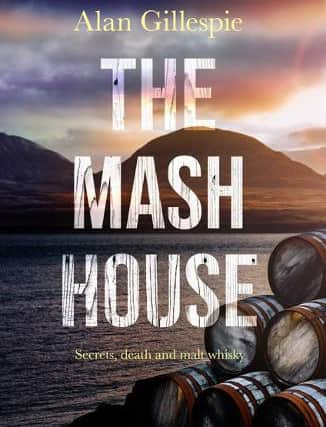Book review: The Mash House, by Alan Gillespie


The idea that dark events can happen in beautiful places is not new, but Cullrothes, Alan Gillespie’s fictional village on the West Coast, seems an ideal setting for a crime novel. A small community, accessible only by ferry or a long journey by road, it’s remote from the usual sources of law and order (the local cop visits once in a blue moon), and various residents are escaping shady pasts.
However, despite the cover design, the short chapters and the tartan noir vibe, this debut novel doesn’t follow the narrative conventions of a crime story. While there are two violent deaths in the early pages, and more corpses follow, we are told exactly how they happen (not sparing the detail) and why. Without the tension or the crossword-puzzle-ish appeal of a whodunnit, the book is driven by the question of who finds out the truth; and whether the guilty parties get away with it.
Advertisement
Hide AdThis isn’t always enough to drive a book which settles into quite a stately pace. Gillespie introduces us to an ensemble of characters whom we follow for the best part of a year: Alice, the new schoolteacher, and her hapless partner Innes, on the run from his past; Jessie, a bright 16-year-old caring for a depressive parent; Donald, the tyrannical distillery owner who seems to run everything in the village, plus a major drug-supply network. The beauty of the area is touched on, but not fully developed.


Gillespie offers us glimpses of his characters’ inner lives but rarely anything deeper. Alice Green, the schoolteacher, is a wickedly compelling character, manipulative, amoral, capable of cruelty both to her partner and to the children she teaches. Is she a victim of past trauma, delusional or just intriguingly bad? We never find out.
The relationship between Jessie and her dying grandpa is, by far, the warmest in the book, though her kindness and competence touches on the saintly. Some of the other characters are really just sketches: the corrupt local journalist, the priest with a penchant for chocolate, the mysterious American who goes by the unlikely assumed name of Johnny Coca-Cola, and whose part in the story is never fully realised.
This is not the underside of rural Scotland dissected with vivaciousness and brutality by Alan Warner, nor is it a probing analysis of the undercurrents of village life, as Ronald Frame did in Time in Carnbeg. In its direct, unselfconscious style and impulse towards action, it perhaps owes most to Iain Banks, though Gillespie is not yet demonstrating Banksian panache. At 400 pages, it would benefit from more editing, particularly in the dialogue, but it’s also true that the pages turn very fast.
Despite the title, we spend very little time in the distillery, but this book is already attracting comparisons to whisky (“dark as peat” and so on). It’s no single malt, but it is an intriguing blend with which one can happily pass a few dark evenings.
The Mash House, by Alan Gillespie, Unbound, £9.99
A message from the Editor
Thank you for reading this article. We're more reliant on your support than ever as the shift in consumer habits brought about by coronavirus impacts our advertisers.
If you haven't already, please consider supporting our trusted, fact-checked journalism by taking out a digital subscription at https://www.scotsman.com/subscriptions